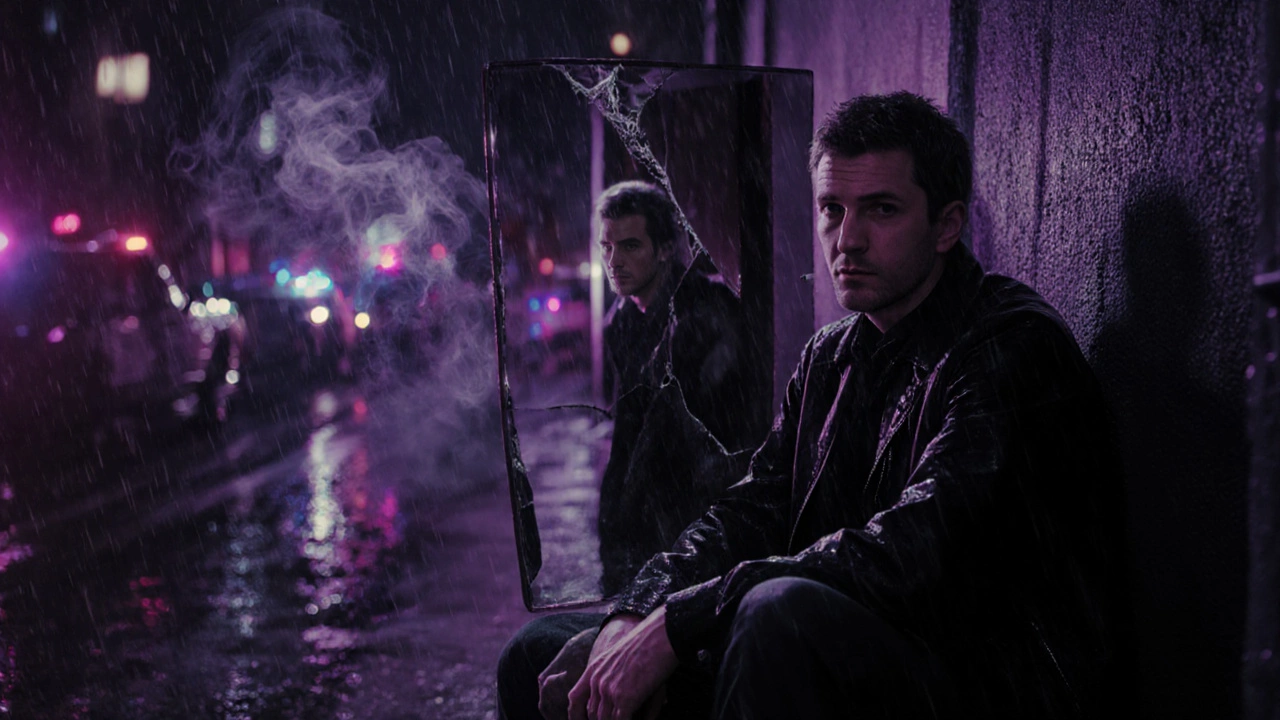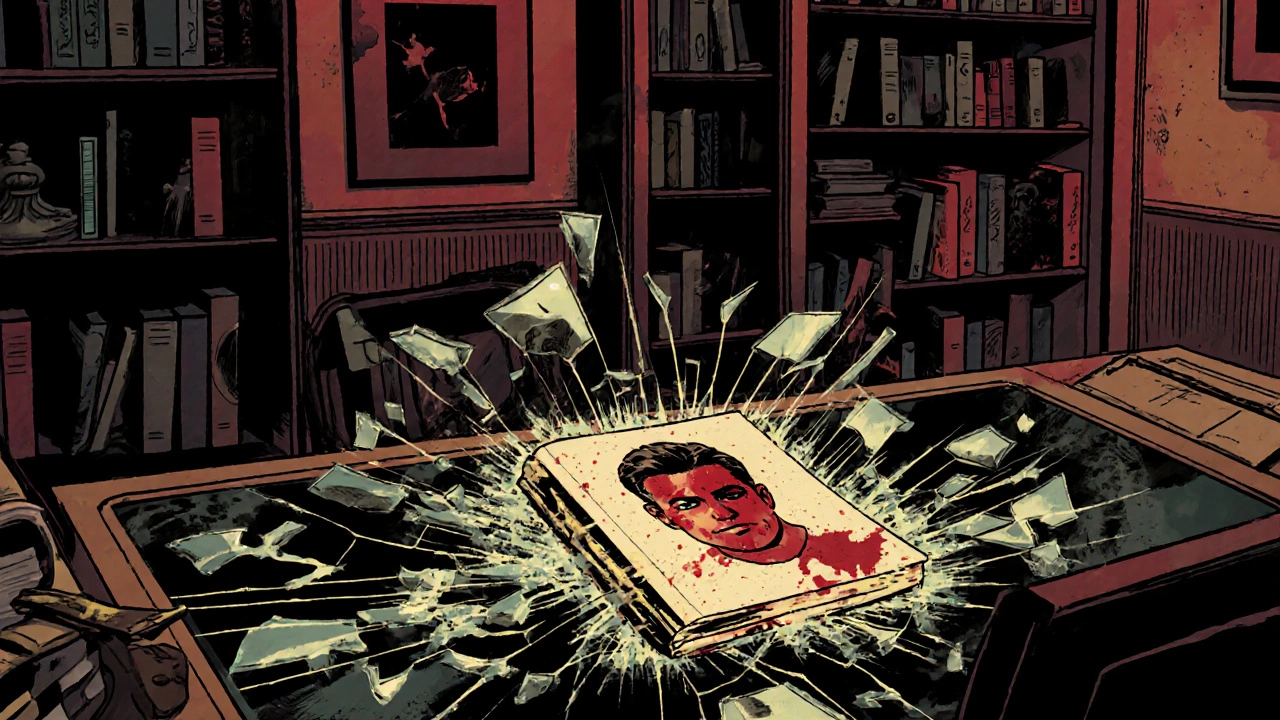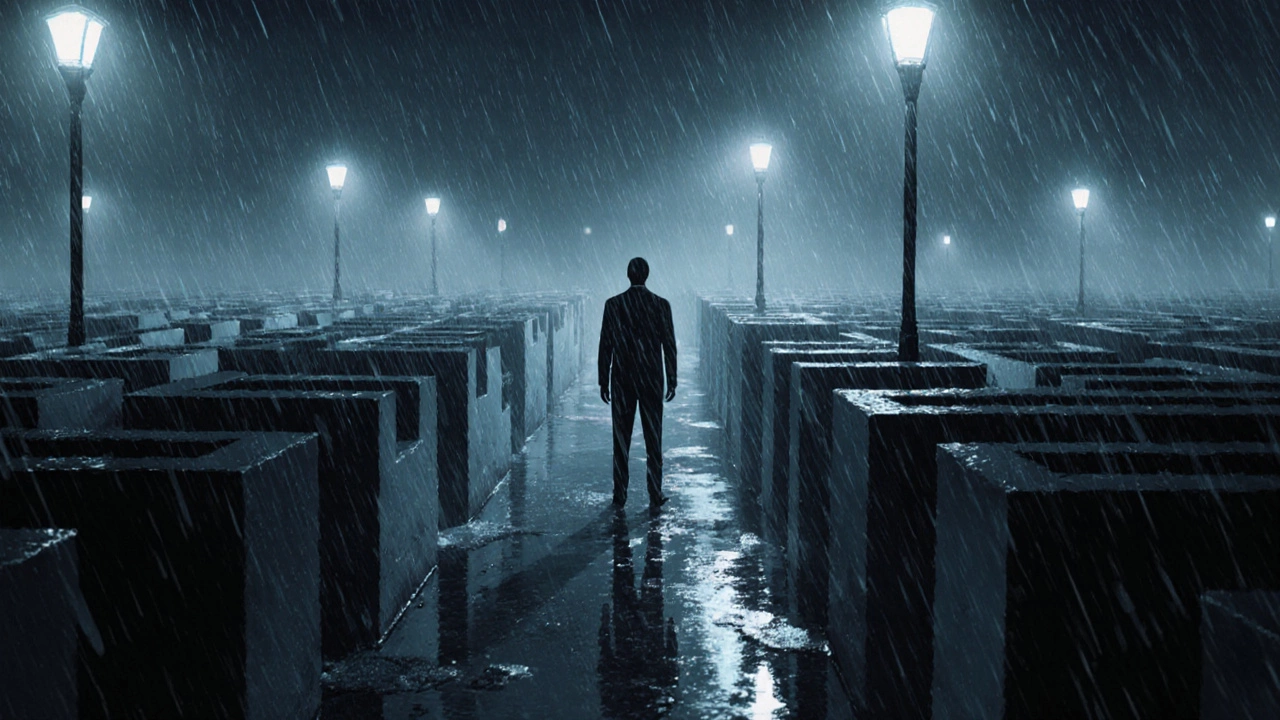Dark Psychological Thriller Quiz
Determine if a story qualifies as a dark psychological thriller using the key criteria from the article. Answer "Yes" to questions that apply to your story.
Results
When people ask Dark Psychological Thriller is a genre that merges the mind‑bending tension of psychological thrillers with a shadowy, often bleak tone, they’re usually looking for a clear answer that cuts through the hype. In plain terms, a dark psychological thriller is a story that puts the characters’ inner demons front and centre while bathing the plot in an unsettling, almost oppressive atmosphere. Think of it as a mental maze drenched in gloom, where every twist feels like a punch to the gut and every revelation reshapes what you thought you knew about the protagonist.
Key Takeaways
- Dark psychological thrillers blend intense mental conflict with a brooding, often ominous tone.
- Core ingredients include unreliable narrators, anti‑heroes, and mood‑driven settings.
- Common themes explore guilt, identity, trauma, and the thin line between sanity and madness.
- Signature techniques involve mind games, twist endings, and relentless suspense.
- Classic examples span books, films, and series like Gone Girl, Se7en, and Sharp Objects.
Defining the Dark Psychological Thriller
At its core, a dark psychological thriller is a psychological thriller that leans heavily into dark fiction territory. While a standard psychological thriller concentrates on mental cat-and-mouse games, the “dark” variant adds a persistent sense of dread, often through morally ambiguous characters and bleak settings. The result is a story that feels both cerebral and visceral.
Core Elements That Set It Apart
Several ingredients consistently appear in the best examples:
- Unreliable narrator: A unreliable narrator who hides truths or misleads the audience, forcing readers to second‑guess every detail.
- Anti‑hero protagonist: Often a flawed, morally grey central figure who is more villain than hero, embodying the anti‑hero archetype.
- Atmospheric mood: A heavy, oppressive mood that feels like a character in its own right-rain‑slicked streets, dimly lit rooms, or endless winter.
- Suspense that never lets up: The suspense engine runs constantly, with ticking clocks, hidden threats, and ever‑present danger.
- Twist ending: A mind‑blowing revelation that re‑frames the entire narrative, often tied to a twist ending trope.
- Mind games: The story plays with perception, memory, or reality, employing mind games that mess with the protagonist’s sanity.

Recurring Themes and Motifs
Dark psychological thrillers gravitate toward a handful of heavy‑handed yet compelling themes:
- Guilt and redemption: Characters are haunted by past sins, and the plot often hinges on whether they can escape or atone for them.
- Identity crisis: Protagonists frequently question who they truly are, leading to shocking self‑discoveries.
- Trauma and memory: Repressed memories surface, blurring past and present.
- Power and control: The narrative explores how far someone will go to dominate another’s psyche.
- The darkness within: A philosophical look at humanity’s capacity for cruelty, often framed through a noir lens.
Narrative Techniques That Keep Readers on Edge
Authors and filmmakers use a toolbox of tricks to maintain tension:
- Non‑linear storytelling: Jumping between timelines creates puzzle pieces that only fit together at the climax.
- First‑person confinement: Limiting the viewpoint to the protagonist’s thoughts forces the audience into their headspace.
- Foreshadowing with red herrings: Subtle hints mislead, then payoff in a shocking way.
- Visual symbolism: Dark corridors, mirrors, and recurring motifs reinforce the mental state.
- Sound design (in film/TV): Dissonant scores or silence amplify anxiety.
Notable Examples Across Media
Below are some standout works that exemplify the genre, grouped by format.
Books
- Gone Girl by Gillian Flynn - A marriage gone horribly wrong, narrated by two unreliable partners.
- Sharp Objects by Gillian Flynn - A journalist returns to her hometown, confronting past trauma.
- The Girl on the Train by Paula Hawkins - A commuter’s skewed observations drive the plot.
- We Have Always Lived in the Castle by Shirley Jackson - Dark family secrets sealed in a gothic manor.
- Mr. Penumbra’s 24‑Hour Bookstore by Robin Sloan - (a lighter edge, but the atmosphere leans toward dark, tech‑suspense).
Films
- Se7en (1995) - A serial‑killer's twisted moral code paints a bleak urban landscape.
- Black Swan (2010) - A dancer’s descent into madness blends art, obsession, and darkness.
- Prisoners (2013) - Parents and detectives navigate moral ambiguity under a storm‑soaked sky.
- Nightcrawler (2014) - A driven anti‑hero thrives on the grim side of news media.
TV Series
- Mindhunter - FBI agents delve into the psyche of serial killers, set against a muted 1970s backdrop.
- True Detective (Season 1) - Two detectives battle personal demons while chasing a cult‑like murderer.
- Hannibal - A gourmet chef turned psychopathic mastermind plays elaborate mind games with an FBI profiler.
How to Spot a Dark Psychological Thriller Before You Start
Use this quick checklist whenever you’re browsing a title page or movie poster:
- Is the protagonist morally ambiguous or an anti‑hero?
- Does the synopsis promise mental games, hidden motives, or unreliable perspectives?
- Are the visual cues (cover art, trailer tones) steeped in gloom, shadows, or stark contrasts?
- Is there a hint of a big twist-something that’ll make you rethink everything?
- Does the description mention themes like guilt, trauma, or identity crisis?
If you answer “yes” to three or more, you’re likely in dark psychological thriller territory.

Reading Recommendations for Different Moods
Whether you want pure dread or a more subtle cerebral tease, here’s a tiered list:
| Intensity | Title | Author / Director | Why It Fits |
|---|---|---|---|
| High | Se7en | David Fincher | Unrelenting gloom, moral darkness, shocking climax. |
| Medium | Gone Girl | Gillian Flynn | Unreliable narrators, twisted marriage dynamics. |
| Low | The Girl on the Train | Paula Hawkins | First‑person confusion, slower burn. |
The Psychological Impact on Readers
Studies from the Journal of Media Psychology (2023) show that dark psychological thrillers raise cortisol levels temporarily, mirroring the body’s response to real threat. The payoff? Readers report higher satisfaction after the story resolves, because the brain rewards the closure of a complex puzzle. However, people prone to anxiety may need to balance such intense media with lighter fare.
Next Steps: Dive In or Write Your Own
If you’re ready to binge‑read, start with one of the recommendations above. If you’re a budding writer, try crafting a short story that features an unreliable narrator trapped in a claustrophobic setting-then twist the ending into something nobody sees coming.
Frequently Asked Questions
What makes a thriller “psychological” versus “action”?
A psychological thriller focuses on the inner workings of the mind-motives, perceptions, and mental manipulation-while an action thriller leans on physical stunts, chase scenes, and external conflict.
Can a dark psychological thriller be funny?
Humor can appear, but it’s usually dark, ironic, or used to heighten the unsettling vibe. Straight‑up comedy rarely fits the genre’s core mood.
Are movies like Inception considered dark psychological thrillers?
Inception leans more toward sci‑fi mind‑bender than pure dark thriller. It lacks the persistent gloom and moral ambiguity that define the dark sub‑genre.
How do I write an unreliable narrator effectively?
Give the narrator clear biases, selective memory, or a secret agenda. Let clues slip for the reader to spot inconsistencies, then reveal the truth in a climactic twist.
Is the dark psychological thriller genre growing?
Yes. Streaming platforms have boosted demand for mood‑heavy, mind‑twisting series, and publishers report a steady rise in sales of titles that blend darkness with psychological depth.

